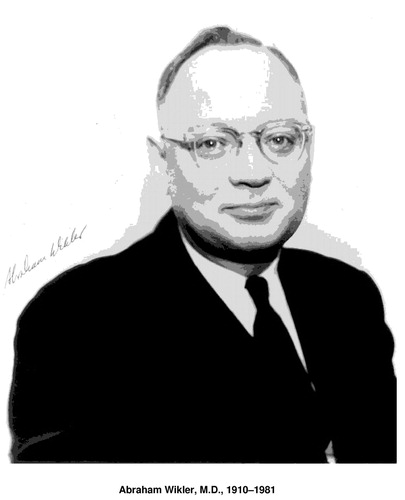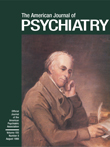Abraham Wikler, M.D., 1910–1981
Abraham Wikler was one of the pioneers in research on addictive disorders and a founding father of the Intramural Research Program of the National Institute on Drug Abuse. He lived most of his professional life in Lexington, Kentucky, where he did his initial residency in psychiatry at the U.S. Public Health Service Hospital and was assigned responsibility for the narcotic withdrawal ward. His first tasks as he completed his residency training were to develop the tools for quantitation of opioid effects on humans, as well as to work preclinically in understanding the neurophysiological aspects of opioid dependence.
During the course of his 15 years of studies at Lexington, Wikler worked with a wide range of collaborators and filled out the notions of conditioning and reinforcement to account for drug-seeking behavior. His critical work in humans related to the conditioning of the morphine abstinence syndrome and its relationship to relapse. His clinical observations of heroin addicts and his rodent laboratory studies led him to conclude that the association between opioid abstinence and specific environmental stimuli could produce both classical and operant conditioning. Furthermore, this conditioning could lead to relapse long after the “cure” of detoxification. This conditioning hypothesis formed the basis for later research and treatment programs using narcotic antagonists. These programs included research by Drs. Roger Meyer and Steve Mirin on heroin self-administration under treatment with naltrexone, and by Dr. Charles O'Brien on conditioning in human opiate addicts and stimulant abusers. Overall, Dr. Wikler's work on conditioning and addiction mentored many clinical and basic scientists working in the field today.
Address reprint requests to Dr. Kosten, VA Connecticut Healthcare System, Psychiatry 116A, 950 Campbell Ave., West Haven, CT 06516; [email protected] (e-mail). Photograph courtesy of Roy Pickens, Ph.D.




